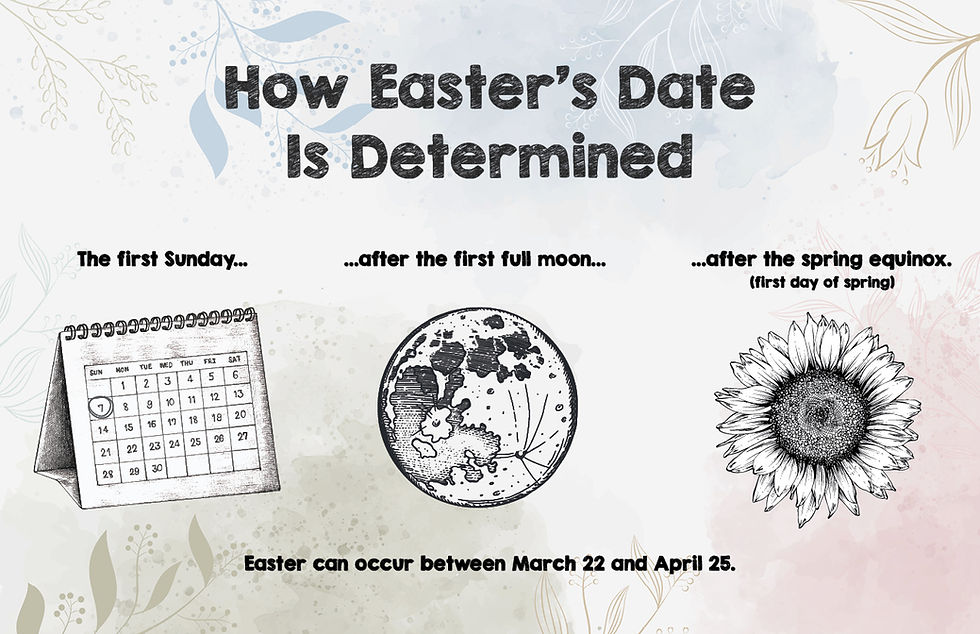How was the date of Easter decided?
- Grace Episcopal Church

- Mar 31, 2023
- 2 min read

This question has a rather long answer, because it is really is at least two questions: How is Easter determined each year, and when did the Church decide that? Then there is also the question of why it’s called Easter.
Determining the date of Easter each year is simple. (OK, maybe not exactly simple.) Easter is the first Sunday after the full Moon that occurs on or after the spring equinox. If the full Moon falls on a Sunday then Easter is the next Sunday. That means that Easter can fall on any date between March 22 and April 25: this year it is April 9, and in 2024 will be on March 31.
The earliest recorded observance of an Easter celebration comes from the 2nd century, though the commemoration of Jesus’ Resurrection probably occurred earlier. Celebration of Jesus’ Resurrection was often celebrated on Passover, so it wasn’t always on a Sunday. In 325 the Council of Nicaea decreed the formula we use in the Western Church to determine Easter. But controversy persisted into the 8th Century and the Eastern Orthodox Church decided to use a different method to determine the date. They usually celebrate Easter a week later than the Western Church.
So why is it called Easter? There are differing opinions on that as well. You may have heard that the English word Easter was derived from the name of the Anglo-Saxon goddess of spring and fertility. But others believe that, given the determination with which Christians combated all forms of paganism, it is very unlikely that the name came from a pagan goddess of spring. There is now widespread consensus that the word Easter derives from an Old German word for dawn.



Comments